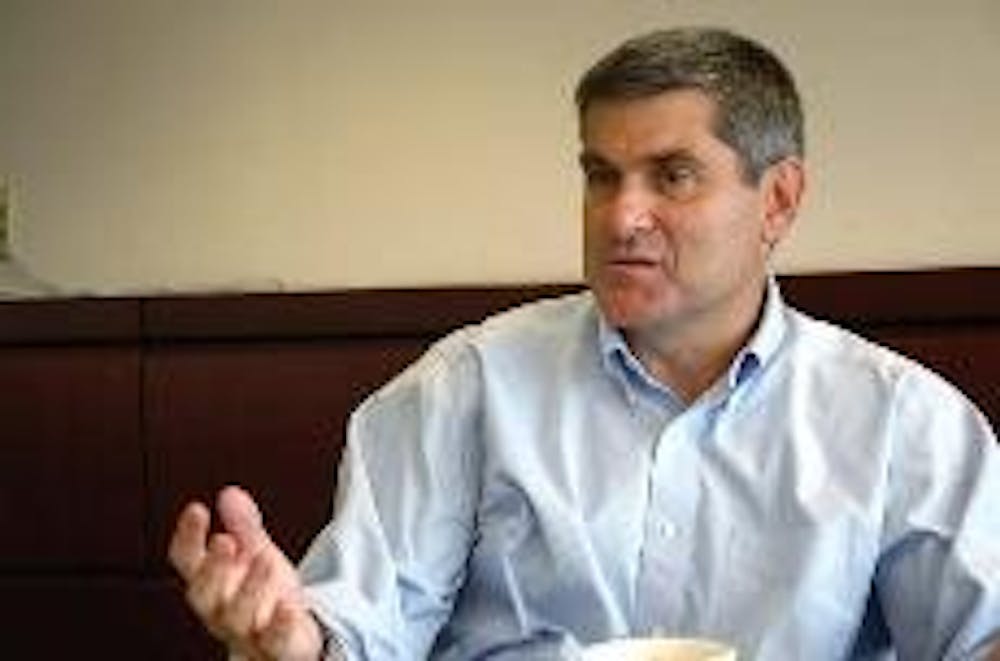
When Craig Thompson was a student in Penn's School of Medicine in the '70s, he wanted to work as a military-base physician.
More than 30 years later, however, Thompson is still at Penn, and he was recently appointed director of the Abramson Cancer Center.
Because cancer patients can amount to about 25 percent of the Penn Health System's patients, "the person who's leading the program becomes a critical leader of the whole medical enterprise," Penn Health System CEO Ralph Muller said.
Thompson will oversee more than 300 physicians and faculty and will be responsible for $180 million in grant funds.
After growing up on military bases around the world - his father was in the Coast Guard - Thompson attended medical school on a Navy scholarship and then served eight years in the Navy, which is when he first became involved in medical research.
Though he served as deputy director for seven years, Thompson said he was surprised, but excited, to become director. He only decided to pursue the post this spring.
"It's an exciting time where the basic research is starting to really inform new treatments that actually go on in the clinic, so one of the major reasons I'm excited about being chosen as the cancer-center director is that this is the time to realize some of those gains" from the past 20 years of research.
But Thompson's predecessor, John Glick, noted the challenges awaiting the new director, including increased competition for funding dollars. He said, however, that Thompson has a strong track record in securing funding.
The center must also be prepared to meet the challenge of more patients in the new facilities, added Glick, who was recently appointed vice president of the Health System and associate dean for resource development at the School of Medicine.
These new facilities include the Perelman Center for Advanced Medicine - currently under construction - which will include some cancer wards when it opens in 2008.
The Abramson Cancer Center was recently named one of 39 comprehensive cancer centers by the National Cancer Institute.
Thompson said interactions with various Penn schools will be a large part of his work. The center maintains a research program with the Annenberg School for Communication on tobacco education, and the School of Engineering and Applied Sciences' computing tools could be used to organize and process new information.
"Because I'm an academic who never left school, I find it incredibly engaging to continue to be part of the whole University, focused on this issue of understanding and treating cancer," Thompson said. "I hope that we have just begun to scratch the surface."
The Daily Pennsylvanian is an independent, student-run newspaper. Please consider making a donation to support the coverage that shapes the University. Your generosity ensures a future of strong journalism at Penn.
DonatePlease note All comments are eligible for publication in The Daily Pennsylvanian.








